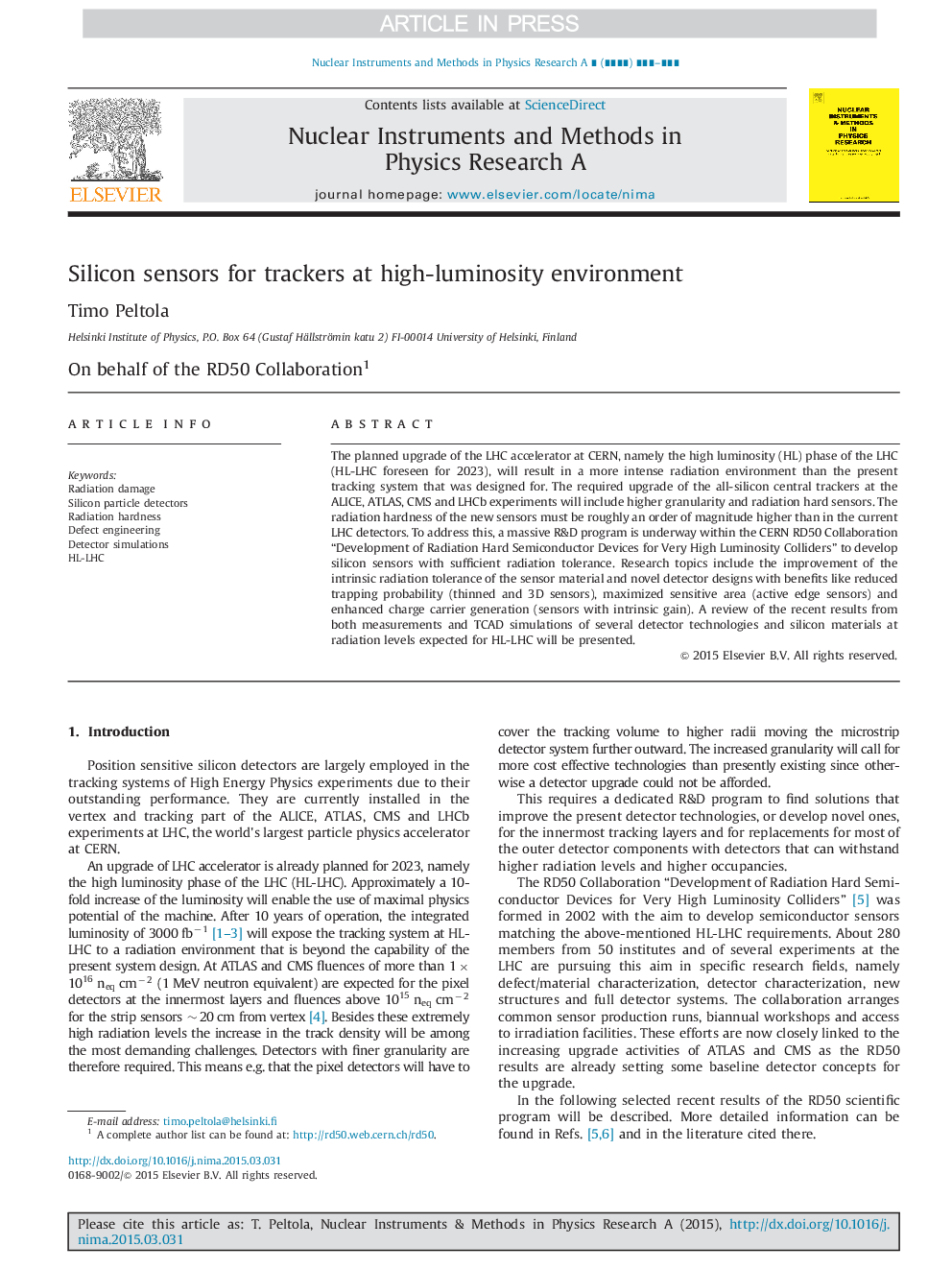| Article ID | Journal | Published Year | Pages | File Type |
|---|---|---|---|---|
| 8172388 | Nuclear Instruments and Methods in Physics Research Section A: Accelerators, Spectrometers, Detectors and Associated Equipment | 2015 | 6 Pages |
Abstract
The planned upgrade of the LHC accelerator at CERN, namely the high luminosity (HL) phase of the LHC (HL-LHC foreseen for 2023), will result in a more intense radiation environment than the present tracking system that was designed for. The required upgrade of the all-silicon central trackers at the ALICE, ATLAS, CMS and LHCb experiments will include higher granularity and radiation hard sensors. The radiation hardness of the new sensors must be roughly an order of magnitude higher than in the current LHC detectors. To address this, a massive R&D program is underway within the CERN RD50 Collaboration “Development of Radiation Hard Semiconductor Devices for Very High Luminosity Colliders” to develop silicon sensors with sufficient radiation tolerance. Research topics include the improvement of the intrinsic radiation tolerance of the sensor material and novel detector designs with benefits like reduced trapping probability (thinned and 3D sensors), maximized sensitive area (active edge sensors) and enhanced charge carrier generation (sensors with intrinsic gain). A review of the recent results from both measurements and TCAD simulations of several detector technologies and silicon materials at radiation levels expected for HL-LHC will be presented.
Related Topics
Physical Sciences and Engineering
Physics and Astronomy
Instrumentation
Authors
Timo Peltola, On behalf of the RD50 Collaboration On behalf of the RD50 Collaboration,
